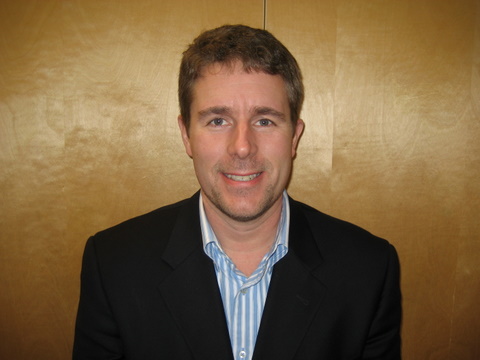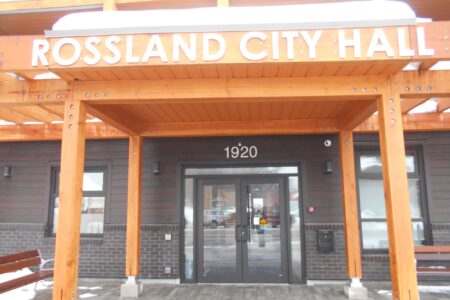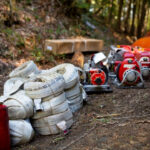Tempers flare and geographic fissures open wide following SD20 decision
The fissures between area communities over what to do with our schools made themselves visible Monday evening at the SD20 School Board meeting. Fiery and emotional rhetoric came from trustees and the public alike as the board voted , 5-3, to delay public meetings in January and re-frame its discussions around educational priorities.
The division on the voting was a clear split with Warfield and Trail trustees Toni Driutti, Lorraine Manning, and Mark Wilson voting against and the rest of the trustees (Mac Gregory and Bev Maloff of the Castlegar area, Gord Smith of Rossland, Elaine van der Meer of the Beaver Valley and Mickey Kanakin of Area I and J of the RDCK) voting in favour of the motion, which was worded as follows: That the Board consult with its communities to develop educational priorities for our students in order to incorporate this information into our Planning for the Future process; and, that the Board postpone the currently scheduled public meetings. The motion was prompted by ongoing feedback received through the Planning For the Future facilities planning process (PFF). As noted by trustee chair Gordon Smith, PFF was designed as a five year process and the facilities report was just the first phase. The board will now be going back to work on the document and developing the educational priorities for students. “The report is largely a facilities report and that is exactly what the board had asked staff to complete,” said Smith. “Given that ongoing feedback and the recent feedback we had at the meeting with the municipalities a few weeks ago and given the feedback we have received from the public, we thought it was a good opportunity to try and reposition the discussion a little bit and see if there is a new way to engage the community around educational priorities and incorporate that into the existing planning process.” A number of Trail and Warfield trustees and politicians were vocally upset at the outcome and have been calling on the school board to choose one of the four scenarios in the plan (all of which include closing RSS) and implement it immediately. Trail City Councilor Robert Cacchioni was particularly incensed at the decision, commenting that “Our position is clear – they (SD 20) have done a study for how many tens of thousands of dollars that took two-and-a-half years. Keeping things status quo, they’re losing three-quarters-of-a-million dollars a year to keep bricks and mortar at the expense of education…[SD 20 should] take one of the top four options [from the Planning For the Future document] and do it… I don’t know who’s doing all the yapping out there, but they don’t know what’s going on. That’s not just my opinion, it’s a fact.” The school board maintains (and re-iterated once again at Monday’s meeting along with an additional reiteration from School District Superintendent Jean Borsa) that the scenarios provided in the report were not recommendations, but merely discussion points from the first phase of the planning process. “It’s truly unfortunate because we have said consistently that the last report, the Planning For the Future binder, is not a final analysis,” added Smith. “The top-scoring scenarios that include the closing of RSS are not recommendations from staff. It is simply the analysis done to date and the analysis is by no means complete. Unfortunately, some members of local governments and public have latched onto that and interpreted it as final recommendations and are now urging the board to move forward, and we are nowhere near that step in the process. Even though we have consistently made that message very clear, we are dealing with some real difficulties in making sure that that message is heard loud and clear. It’s not because we haven’t told them this. It’s because they’ve chosen not to hear it.” Both Rossland and Castlegar’s mayors, who presented a joint statement, pointed out the flaws they saw in both the process and the facilities report. They were pleased with the result and the opportunity for additional discussion and input on what they see as the most critical factor: the educational priorities and needs of children. “I give full credit to the trustees for listening to the communities of Castlegar and Rossland and full marks for understanding that education is a little more than a block building,” commented Rossland Mayor Greg Granstrom. “Kudos to the trustees and we look forward to working with them. I’m sure we can come up with some positive results.” Some of the trustees were not pleased with Rossland and Castlegar’s “interference” in the process, however, and see Monday night’s decision as a politically-motivated one as opposed to one that will best serve the community and see the continuation of the five year planning process as a waste of time. “We’re starting all over again,” said Trail area trustee Toni Driutti, saying the new ‘education focus’ approach will take another three years the district can’t afford to waste, rather than following through with the Planning For the Future approach. “We’ve been at this for two-and-a-half years – Castlegar and Rossland can come in and tell us we’re not doing it right, but we’re the ones who have to deal with the funding.” She added that trustees have been “totally bullied” by the municipalities involved. “When we get a letter from Rossland and Castlegar telling us we’re stupid and our staff is stupid and our document is flawed and it’s not about education…” she said. “The municipalities have shut down our work, and the public consultation process. If they want to run the board, they should run for trustee. This isn’t about the individual municipalities; we’re looking at the education of our students.” The education of students and setting priorities and plans around that will be the basis of the next phase of planning. The best way of incorporating that next set of data and discussions into the plan came into question following the decision as well. Mark Wilson, a trustee from the Trail area, agreed that these discussions need to happen, but voted against the motion, feeling that the best way to get this discussion happening was through the scheduled public meetings in January. “I was against [the motion] because we were supposed to have these focus group meetings in January, February, and March. I thought we were going to go to the community, garner more information and then work on it from there. What I see now is we’ve put it off and we’re delaying the process. We should have gone out to the communities as planned. We could have had these same discussions and get this same information through the planned process. It’s a shame we have to move them.” Smith is hopeful that people will now be able to move past the regional divisions and work together for the betterment of our education system and children. “I would like to see the board move past these regional differences and tone down the rhetoric and stick to their priorities and the things that matter. Unfortunately, this planning process has amplified the regional differences thus far. I understand some people are pretty upset, but the majority of the board has made this decision. If people feel this direction is the wrong one, they will have to respect the will of the board and work within those confines. I’m trying to be as positive as possible through this and keep my focus on the educational needs of the children in our region.” The next round of public input was scheduled to take place beginning in early January. The school board will now reconvene as a working committee in early January to design the next steps and identify the items they want to bring forward before coming back to the public for more input.


























